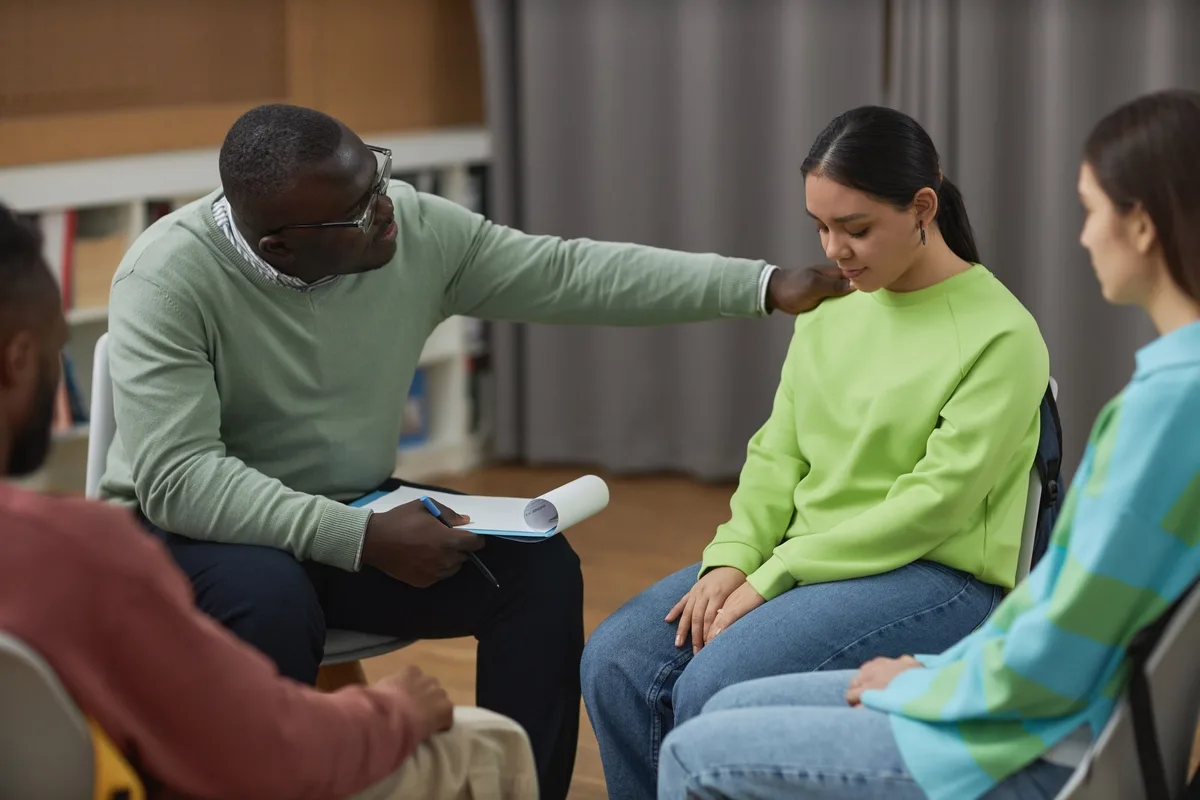24/7 Helpline:
(866) 899-111424/7 Helpline:
(866) 899-1114
Learn more about Bipolar Disorder Treatment centers in Randolph County
Bipolar Disorder Treatment in Other Counties

Other Insurance Options

Sutter

Sliding scale payment assistance

Regence

Providence

Self-pay options

Health Choice

GEHA

State Farm

Premera

BlueCross

CareSource

Multiplan

Health Partners

PHCS Network

Absolute Total Care

EmblemHealth

UMR

Covered California

Magellan

Molina Healthcare

Triad Therapy
Triad Therapy is an outpatient treatment specializing in mental illness and addiction issues. Servic...

Randolph Fellowship Home
Randolph Fellowship Home, located in Asheboro, North Carolina, is a nonprofit substance use disorder...

Daymark Recovery Services
Daymark Recovery Service, situated in Asheboro, North Carolina, is a reputable dual diagnosis behavi...


























































ASG Services
ASG Services is a private rehab located in Asheboro, North Carolina. ASG Services specializes in the...

Randolph Fellowship Home – Mangum House
Randolph Fellowship Home - Mangum House is a private rehab located in Asheboro, NC. Randolph Fellows...

New Beginnings Youth Facility
New Beginnings Youth Facility is a private rehab located in Ramseur, North Carolina. New Beginnings ...

ADS Alcohol & Drug Services
ADS Alcohol & Drug Services is a CARF-accredited substance abuse rehab center in Asheboro, NC that p...

Behavioral Associates of Asheboro
Behavioral Associates of Asheboro is a private rehab located in Asheboro, North Carolina. Behavioral...

AA – Alcoholics Anonymous
AA – Alcoholics Anonymous is a non-profit rehab located in Asheboro, North Carolina. AA – Alcoholics...

Randolph County Day Reporting Center
Randolph County Day Reporting Center is a public rehab located in Asheboro, North Carolina. Randolph...


























































